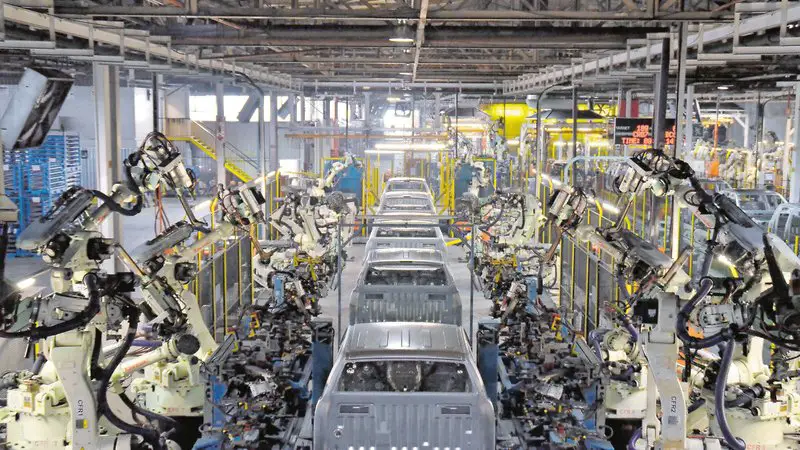The R15.8 billion project to modernise the Silverton Ford vehicle manufacturing plant is on track to be completed in September next year.
Also Read: Johannesburg Oracle Data Centre to be constructed
The Gauteng MEC for Economic Development, Parks Tau announced this when visiting the site of the Silverton Ford vehicle manufacturing plant with Fikile Majola, the Deputy Minister of Trade, Industry and Competition, yesterday to evaluate the building work in progress.
President Cyril Ramaphosa inaugurated the Tshwane Automotive Special Economic Zone in 2019, with an R15.8 billion investment from Ford Motor Company and an additional R4.3 billion investment from automotive component suppliers based on the project.
Fikile Majola, Deputy Minister of Trade, Industry and Competition, and Parks Tau, Gauteng MEC for Economic Development, recently went on a tour to the Tshwane Automotive Special Economic Zone to check on its progress
Manufacturing has already commenced, despite the fact that equipment is still being erected. This would be connected to the work the contractors are doing with the national government, Transnet, and the Eastern Cape government to ensure that they can extend their railway network and export the bulk of the vehicles produced from the site.
Ford will be able to build the next-generation Ranger bakkie for both local and international markets after the Silverton plant is modernised.
According to Majola, the Silverton Ford vehicle manufacturing plant project has created at least 6 000 jobs so far, with the number expected to grow as the project progresses.
He said that their tour of the Silverton Ford vehicle manufacturing plant was in preparation for Ford President Bill Ford’s visit in November to appraise the project.
Since Ramaphosa’s sod-turning event in 2019, Majola has praised the work that has been done on-site.
He claimed that at least 70% of the work had been completed and that industries requiring on-site accommodations had already been established.
He also stated that, despite the progress made, there were still certain challenges, such as Covid-19 and steel availability.

